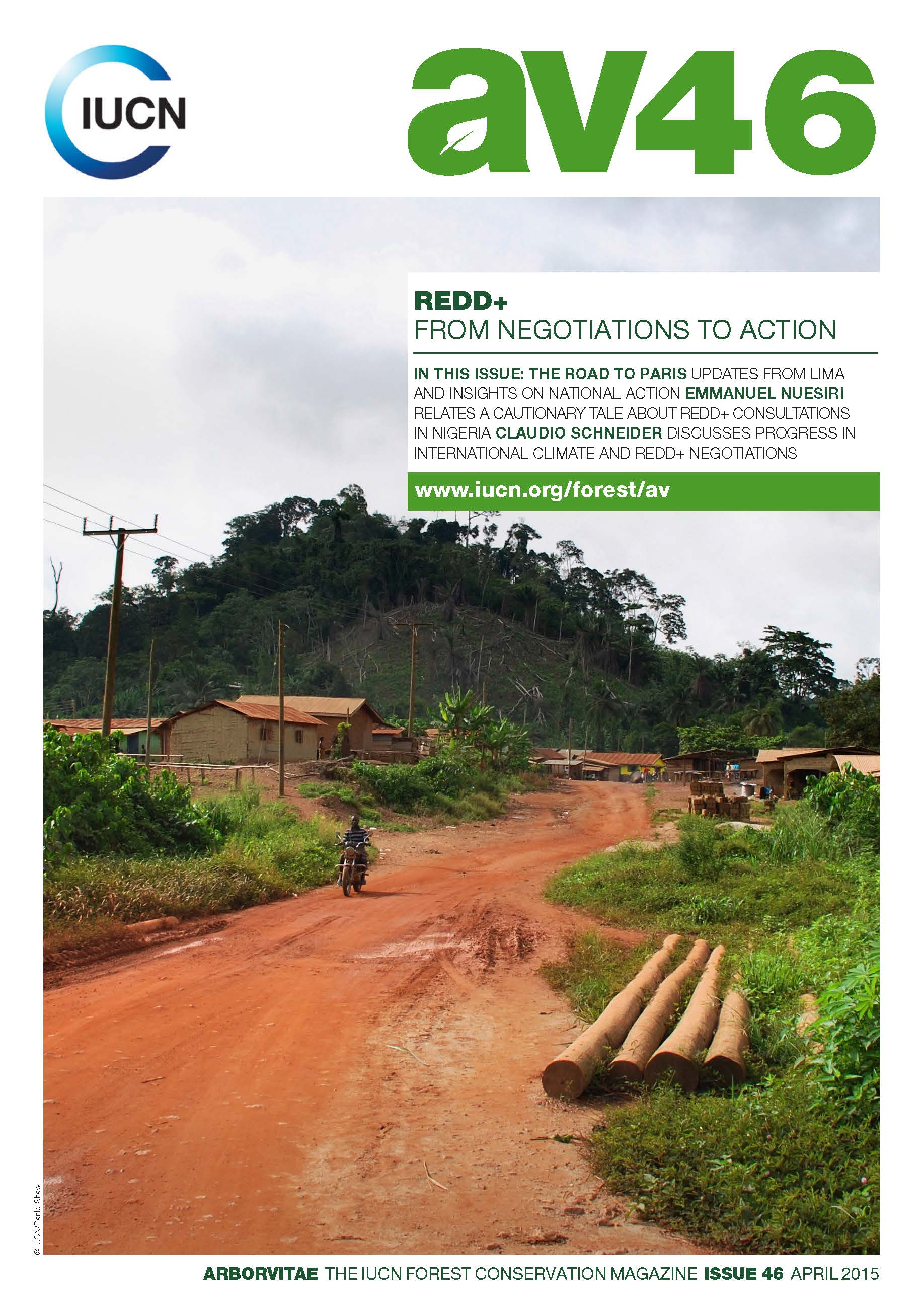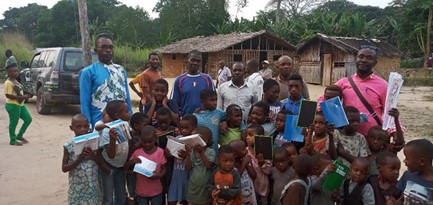arborvitae Issue 46 - REDD+ from Negotiations to Action
- UNFCCC: The road to Paris COP 21 and updates from Lima COP 20
- Using REDD+ to meet national objectives in West and Central Africa
- REDD+ and forest landscape restoration
- A human rights-based approach to REDD+
- Emmanuel Nuesiri relates a cautionary tale about REDD+ consultations in Nigeria
- Insights on national action in Guatemala, Uganda, Papua Province and Ghana
- Claudio Schneider discusses progress in international climate and REDD+ negotiations

Photo: Daniel Shaw photo, Helen Miller design
In the years since the international climate negotiations first took up the idea of protecting and enhancing forests as a means of storing carbon, there has been a marked shift in how REDD+ has been considered and implemented. The initial focus on stand-alone mitigation projects has expanded to include efforts to support the development of national REDD+ policies. 2015 will see the culmination of this shift as REDD+ and other land-use actions are expected to feature strongly in the intended nationally determined contributions (INDCs) being prepared by UNFCCC Parties in the run-up to the next round of negotiations in Paris in December.
As talks on REDD+ turn from the technical to the political and attention moves towards national commitments and action, there is a real need for institutional arrangements that facilitate REDD+ and other land-use actions. An on-going challenge for many REDD+ countries is how to establish an effective institutional framework that reconciles different, sometimes contradictory, sectoral policies into coherent, low-carbon, sustainable land management, while also ensuring that local communities are involved in shaping and administering REDD+ benefit-sharing arrangements.
This issue of arborvitae includes updates on national progress on REDD+ policies and preparations for the Paris negotiations. We look at promising developments as well as potential stumbling blocks, and we include the voices and viewpoints of a range of different stakeholders involved in the international negotiations, national preparations and local consultations and actions.



